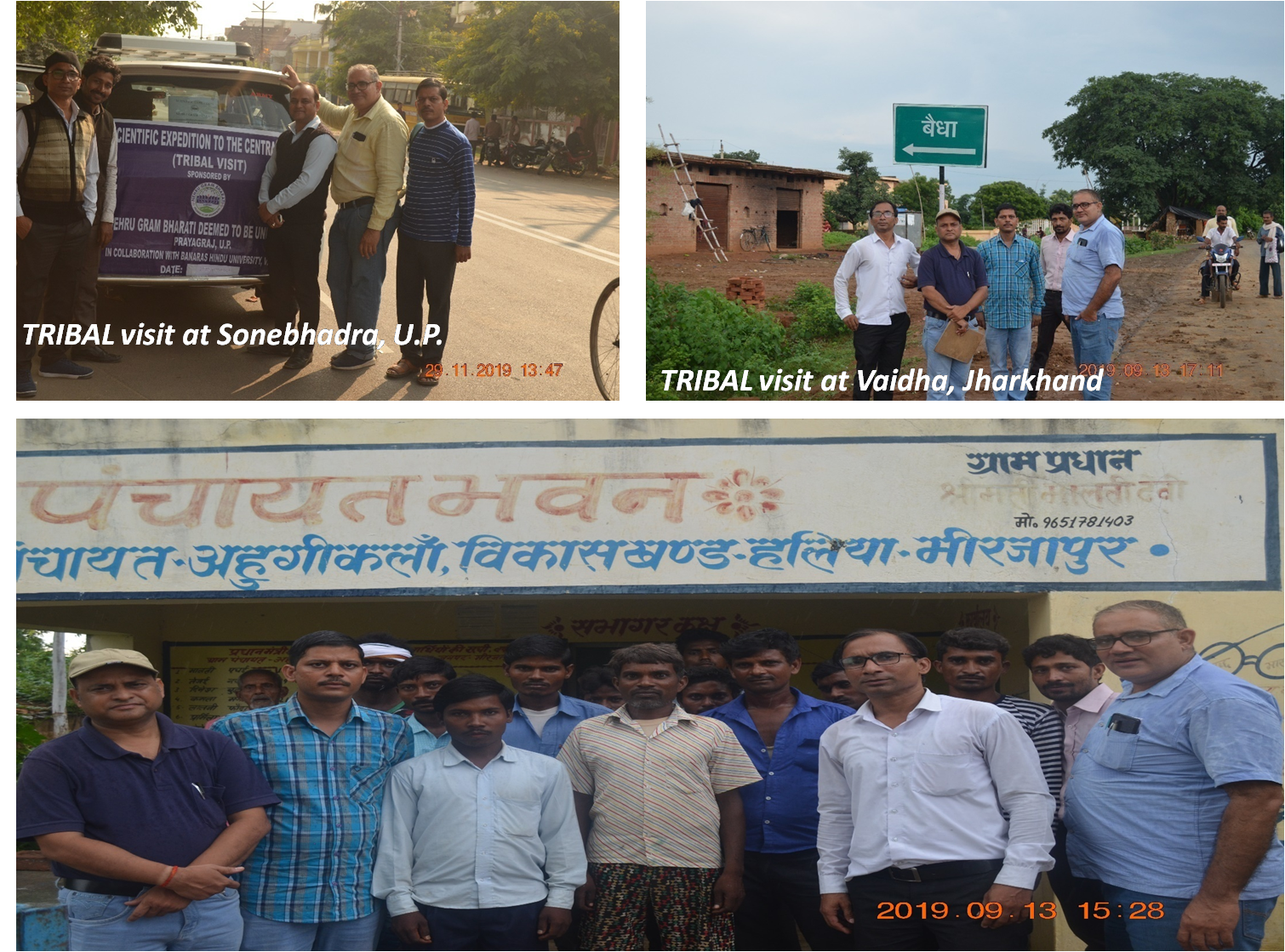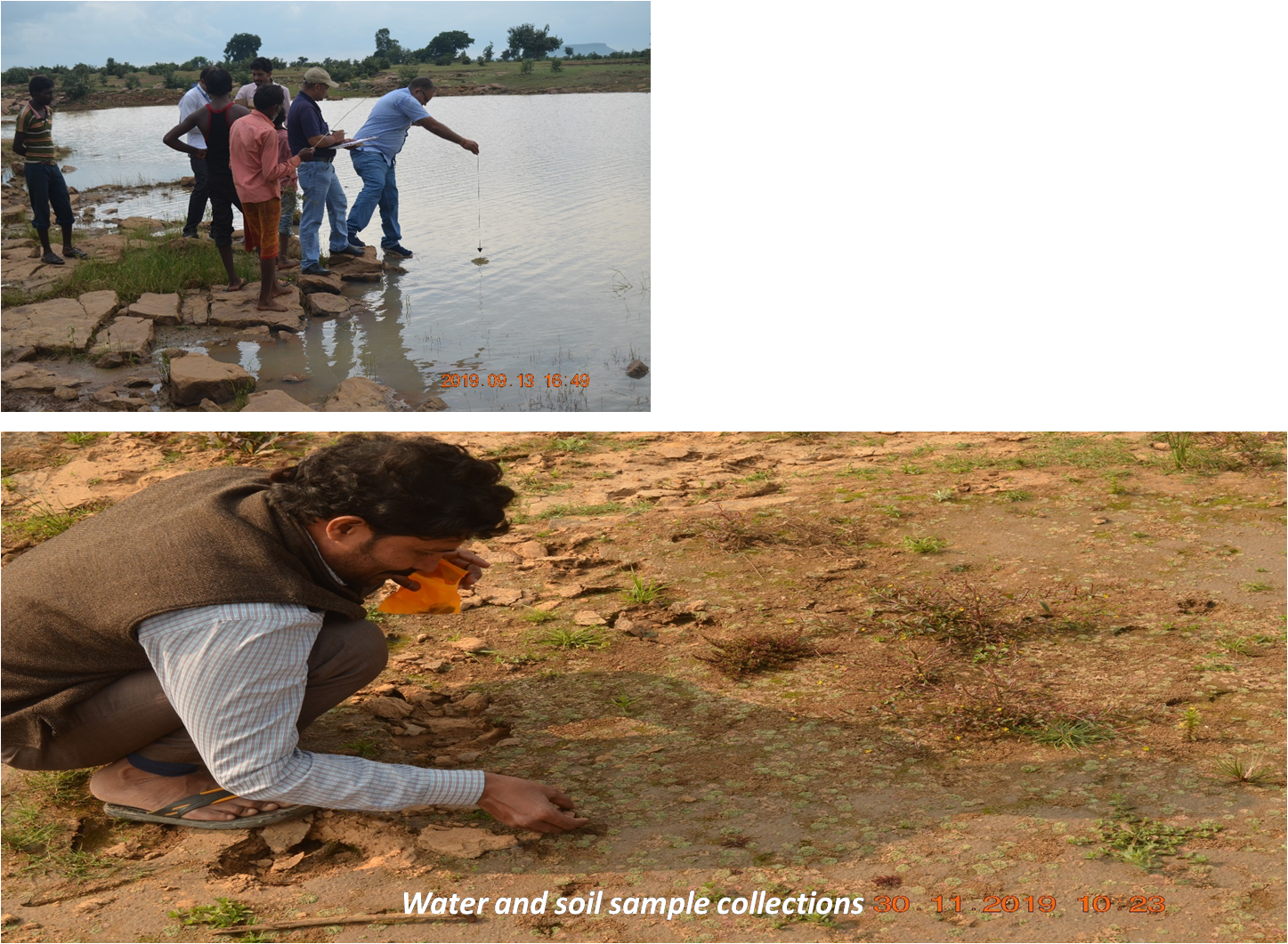TRIBAL VISIT
Under the collaborative initiative between Advanced Research in Genomics and Traditional Medicine, IMS, BHU, Varanasi and NGBDU a Scientific Expedition was organized to visit Tribal and Rural area of Central India including Mirzapur, Sonebhadra (U.P) and adjacent districts of Chhatitisgarh, Jharkhand and M.P. The visit was expected under the supervision of Prof. G. P. Dubey, Study Director and Monitoring Authority (BHU).
The major objective of the visit was to identify and study the causes of Ethnic variation (Study of Genomics and Proteomics), Biodiversity, Ecosystem-Health Management and restoration of Renewable Energy resources intended to up-liftment of Socio-economic status of the local deprived society.
The specific objective of the expeditin is mentioned below:
-
Prevalence of single and multiple gene disorders
-
Qualitative, quantitative and heavy metal analysis of Soil and water
-
Studies on prevalence of malnutrition cases and consequences
-
Studies on prevalence of neurodegenerative disorders and etiology of mental retardation.
BRIEF REPORT OF RECENT VISIT
The scientific expeditin was organized during 13-14 September 2019 involving different experts’ members for sites selection to find the obtaining objective of the study; Socio-econmic and Environmental study especially in the Tribal belts in Central Indian region; District Sonebhadra, U.P. nd District Seedhi, Singrauli and Rewa, M.P.
First day (13.01.2019) of study, Baidha tribal village in Halia Block U.P. were visited. Kol tribal community is the prominent community lives in this village and around 400 houses around. The socioeconomic expert collected his data of life style, income, education and other social aspects. The environmental expert collected the data of physic-chemical characteristics as well as biological samples. The expert collected samples drinking water from hand pipe because it is water source and natural water sources river water also. The botanist expert collected the vegetation samples around the village. Legumes and oil seeds are the main crop in village.
Team Members
-
Prof. G. P. Dubey : Study Director and Advisor, BHU, Varanasi
-
Prof. O.P. Upadhyay : C.M.O. IMS, Advisor BHU,
-
Dr. Pawan Dubey : Clinician, IMS, BHU
-
Dr. Gyanesh Ku. Trivedi : Social Work, NGB (DU)
-
Dr. Asheesh Shiwam : Environmentalist NGB (DU)
-
Dr. Adinath Upadhyay : Botanist NGB (DU)
-
Dr. Pradeep Upadhyay : GPS and Remote Sensing NGB (DU)



News & Events


